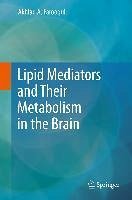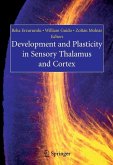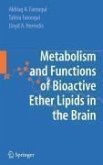Lipid mediators are chemical messengers that are formed in response to cell stimulation or injury from membrane phospholipids, sphingolipid, and cholesterol. They play important roles in internal and external communication and modulate cellular responses such as the growth arrest, differentiation, adhesion, and migration. Lipid mediators of arachidonic acid (ARA) metabolism include prostaglandins, leukotrienes, thromboxanes, lipoxins, whereas lipid mediators of docosahexaenoic acid (DHA) metabolism are resolvins, protectins, neuroprotectins, and maresins. The non-enzymic lipid mediators of ARA and DHA metabolism include isoprostanes, neuroprostanes, isoketals, neuroketals, isofurans, neurofurans, 4-hydroxynonenal, and 4-hydroxyhexanal. Ceramide, ceramide 1-phosphate, sphingosine, and sphingosine 1-phosphate are lipid mediators of sphingolipid metabolism. These mediators are closely associated with apoptotic cell death, cell proliferation, cell migration, and survival. Cholesterol-derived mediators include 24-hydroxycholesterol, 25-hydroxycholesterol, 27-hydroxycholesterol, and 22-hydroxycholesterol. These mediators act as ligands of liver X receptors, transcription factors with key roles in lipid metabolism. Under normal conditions, low levels of lipid mediators are needed for signal transduction, gene expression, and neural cell proliferation and differentiation, but high levels of enzymic and non-enzymic lipid mediators of glycerophospholipid, sphingolipid, and cholesterol metabolism produce neurodegeneration through the induction of oxidative stress, neuroinflammation and synaptic dysfunction.
Lipid Mediators and Their Metabolism in the Brain presents readers with cutting edge and comprehensive information not only on the synthesis and degradation of glycerophospholipid-, sphingolipid-, and cholesterol-derived lipid mediators, but also their involvement in neurological disorders. It is hoped that this monograph will be useful not onlyto postgraduate student and their teachers, but also to research scientists and physicians, who are curious about the generation and roles of lipid mediators in the brain.
Lipid Mediators and Their Metabolism in the Brain presents readers with cutting edge and comprehensive information not only on the synthesis and degradation of glycerophospholipid-, sphingolipid-, and cholesterol-derived lipid mediators, but also their involvement in neurological disorders. It is hoped that this monograph will be useful not onlyto postgraduate student and their teachers, but also to research scientists and physicians, who are curious about the generation and roles of lipid mediators in the brain.
Dieser Download kann aus rechtlichen Gründen nur mit Rechnungsadresse in A, B, BG, CY, CZ, D, DK, EW, E, FIN, F, GR, HR, H, IRL, I, LT, L, LR, M, NL, PL, P, R, S, SLO, SK ausgeliefert werden.









